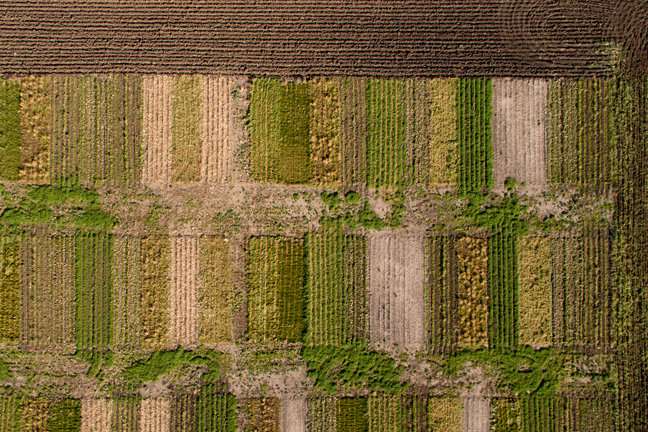Study shows way to create common ground about gene-editing

In an increasingly crowded and hungry world, a range of new food production technologies are emerging in an effort to keep up. New gene editing approaches now let scientists hack into genomes to alter foods' characteristics – increasing yields, lengthening shelf-life, or improving disease resistance.
A recent study led by University of Minnesota researchers from the College of Food, Agricultural and Natural Resources Sciences (CFANS) provides the most concrete proposal to date for an open, inclusive process of considering whether, when, and how gene-editing biotechnologies could be used and developed, in a way that is broadly acceptable to society.
"Changes that took decades or centuries through selective breeding, can now be made in a matter of months – a blessing or a curse depending on your perspective. In fact, the fervor behind these positions has stagnated policy action and created a 'powder keg' environment that blocks the careful thinking needed to find a way to meet society's tremendous food challenges," says Professor of Agronomy and Plant Genetics Professor Nicholas Jordan, lead author of the study recently published in EMBO Reports.
"Figuring out how to govern the emerging rules of this new game is critical to farmers, scientists, entrepreneurs and civil society organizations seeking to navigate the benefits and risks of advances in gene editing."
Cooperative governance networks have helped find common ground about complex sustainability issues, and might be very effective for governing possible applications of new agricultural biotech, such as "gene-editing" techniques for breeding crops.
In cooperative governance networks, a range of societal sectors—private companies, non-profit organizations, researchers, and governmental agencies—cooperate to manage complex issues related to particular products and processes. A governance network for gene-editing of crops might initially focus on crops that would add ecological and economic diversity and resilience to agriculture, rather than on dominant staple crops such as maize or rice. To operate, the network needs to engage crop breeders, investors, and a range of advocacy groups. All three would have strong incentives to participate in the network.
"A cooperative governance network for gene-editing could surmount the intensely polarized discussions of current ag biotech," says Bioproducts and Biosystems Engineering Professor Timothy M. Smith, co-author of the study. "It provides a new approach to exploring and evaluating the risks and benefits of new ag biotech that is emerging from explosive growth in understanding of genomes and genetics."
"However, at present it is almost impossible to discuss these techniques in a productive way," Smith says. "It is critical for society to carefully consider the risks and benefits of using these new techniques in an open and inclusive process. Cooperative governance networks have a track record of supporting such careful, open, and inclusive consideration about complex challenges."
Others have called for broad-based processes but have not provided a specific, implementable plan. In the absence of public policy action, collaborative governance may provide a legitimate starting point toward the responsible development of these important and powerful technologies.
More information: Nicholas R Jordan et al. A cooperative governance network for crop genome editing, EMBO reports (2017). DOI: 10.15252/embr.201744394
Journal information: EMBO Reports
Provided by University of Minnesota


















